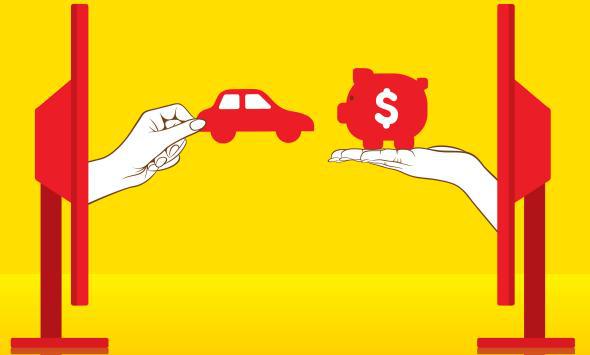Greetings, Future Tensers,
It’s a new month, which means it’s time for a new Futurography course. This time, we’re looking into the ways technology is reshaping ownership—from the disappearance of physical media to the rise of on-demand autonomous vehicles. As always, we’re starting with a conversational introduction as well as a cheat sheet that will guide you through some of the lingo, key players, and major debates. There’s more coming, so stay tuned. And, if you love newsletters as much as I do, sign up for our new (monthly) Futurography newsletter, which will help you keep up on everything you might have missed. You can enroll here.
We’re also wrapping up last month’s Futurography unit on nanotechnology. Chemist Korin Wheeler wrote on the difficulties of predicting the environmental effects of nanomaterials. And I spoke to a handful of nanoscientists to better understand some of the central misconceptions about their field. Once you’ve finished those, take our nanotechnology quiz to see what you’ve learned. (Is there a question about Dungeons and Dragons monsters on that quiz? Maybe.) And be sure to also fill out our reader opinion survey on nanotech.
Of course, we’re still exploring other beats as well: Discussing recent hacks of voting records, Rep. Zoe Lofgren writes that such intruders don’t have to rig an election to do damage. Instead, Lofgren writes, they could “attack the faith and confidence the American people have in their elections systems while sowing doubt about the validity of U.S. elections.” That such crises are possible at all is, Brian Nussbaum explains, a partial consequence of “security debt,” a problem that emerges when earlier cost-cutting catches up with us. As more and more of our civic processes shift online, the collectors are knocking on our door.
Here are some of the other articles we read while we were celebrating the birthday of an awful law:
- Autonomous vehicles: Henry Grabar weighs two competing ideas about driverless cars, one holding that they’ll transform cities—the other that they’ll revolutionize the suburbs.
- A.I. assistants: Google’s newly announced Home system marks an attempt to inject advertising into every element of our lives, Will Oremus argues.
- Video games: Studying the history of procedurally generated virtual worlds, I found that the less personality a game has, the more personal our time with it can become.
- Communication: Unanswered emails create all sorts of anxieties, and resolving those feelings isn’t always as easy as picking up the phone, Katy Waldman finds.
Events:
- Is it time we designed an election for the 21st century? Join Future Tense in Washington, D.C., on Oct. 5 (today!) at 6 p.m. for a happy hour and brainstorm on how to create a better, more efficient, and more just election system. For more information and to RSVP, visit the New America website.
Owning up to it,
Jacob Brogan
for Future Tense
Future Tense is a partnership of Slate, New America, and Arizona State University.
